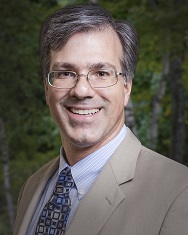During your time at an intensive program for eating disorder treatment you are likely to experience structured programming, staff support, meal coaching, peer support and family involvement. While in this type of environment, it is often easier to stay on track in working toward treatment goals, as there is less free time and more efforts focused on establishing and utilizing healthy coping skills. We often hear from clients post-discharge, that without the support of the staff and milieu in program, the transition back to daily life can be quite challenging. For this reason, it is imperative that parts of the treatment environment get carried over upon discharge.
Here are four suggestions to help you transition from an intensive treatment program back into your everyday life.
- Recruit an awesome outpatient team that you trust
Ideally, upon being discharged from treatment, you will have already worked with your case manager to find an outpatient team that will help you to continue on your path to recovery. If you have yet to find providers, we recommend enlisting consistent care from a medical doctor, a nutritionist and a licensed therapist who have signed a document enabling them to work collaboratively with each other on your case. Finding providers that you trust can sometimes be difficult, but allow yourself to be open and honest with your team about what you need and how they can be the best allies for you in your recovery.
- Find recovery resources in your community
It can be really hard transitioning from an extremely supportive treatment environment to a less structured environment post-discharge. While it is easy to isolate and withdraw from others, we urge you to continue to connect with others who can validate your experience. There are plenty of resources in your community that can help to keep you on track. MEDA holds regular recovery groups that cater to a broad range of disordered eating issues, we host weekly alumni support groups at most of our sites or you can check out the NEDA site to find eating disorder-related support near you.
- Identify recovery-focused friends and family
Now that you have your treatment team and some specialized support groups in your area, you are going to need to establish a core group of people to cheer you on, motivate you and have dinner with you when you feel the urge to use a behavior. I call these people, “The Recovery Tribe,” and everyone needs one. These people can be family, friends, colleagues or even members of your religious group. These special individuals are those who are willing to share your burden so that you don’t have to go at it alone. Be sure to let your tribe know how best to help you—while it would be nice if they could mind read, most of us can’t—so educate them on how you like to be supported.
- Go out and find what makes you feel alive
In recovery from anorexia, bulimia, binge-eating disorder or other eating disorders, many people report that they’re experiencing life in a totally new and exciting way. Without so many intrusive thoughts / behaviors around food, weight or body, they are able to find or explore (new) things that make them “feel alive” or part of something. There are plenty of ways to branch out—sign up for an art class, take your dog to a new dog park or try a yoga class!
We know finding treatment can be tough. Walden is here for you. If you are concerned that you, or a loved one, may have an eating disorder, please reach out by completing the form on this page or email us at intake_coordinators@waldenbehavioralcare.com.
 Bob Bordonaro is director at Walden’s Peabody clinic. He is responsible for ensuring effective clinical programming, program staffing, selection and supervision of staff, budgeting and compliance with all organizational and regulatory agency standards. Formerly, Mr. Bordonaro was Timberline Knoll’s professional outreach representative for the Northeast region. Prior to that, Mr. Bordonaro was director of admissions at Laurel Hill and was responsible for managing all aspects of the admissions department. Before working for Laurel Hill, Mr. Bordonaro was Walden’s director of the partial hospitalization program for several years. Formerly, Mr. Bordonaro worked for Deaconess Waltham Hospital as a crisis clinician/eating disorders admissions coordinator. Mr. Bordonaro began his career working as a mental health counselor at McLean Hospital, Belmont, MA. Mr. Bordonaro earned his master’s in social work from Simmons College. He is the current president of the International Association of Eating Disorders Professionals Metro Boston Chapter and has been a member of the National Association of Social Workers since 1998.
Bob Bordonaro is director at Walden’s Peabody clinic. He is responsible for ensuring effective clinical programming, program staffing, selection and supervision of staff, budgeting and compliance with all organizational and regulatory agency standards. Formerly, Mr. Bordonaro was Timberline Knoll’s professional outreach representative for the Northeast region. Prior to that, Mr. Bordonaro was director of admissions at Laurel Hill and was responsible for managing all aspects of the admissions department. Before working for Laurel Hill, Mr. Bordonaro was Walden’s director of the partial hospitalization program for several years. Formerly, Mr. Bordonaro worked for Deaconess Waltham Hospital as a crisis clinician/eating disorders admissions coordinator. Mr. Bordonaro began his career working as a mental health counselor at McLean Hospital, Belmont, MA. Mr. Bordonaro earned his master’s in social work from Simmons College. He is the current president of the International Association of Eating Disorders Professionals Metro Boston Chapter and has been a member of the National Association of Social Workers since 1998.







